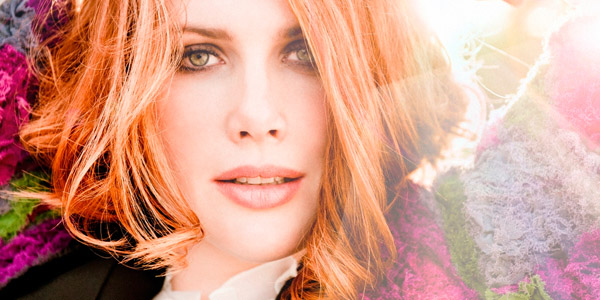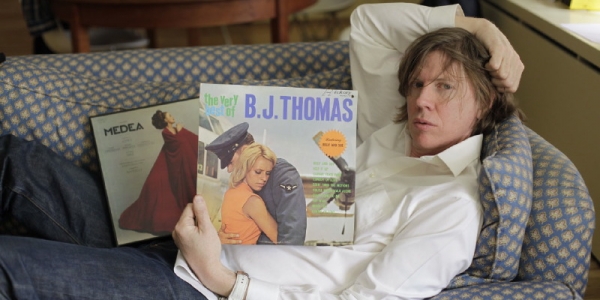“I remember seeing a book on a shelf written by Stephanie Dowrick called Choosing Happiness and it made me angry. I thought, ‘Surely if I could choose happiness I would have done it by now’. Once I read the book I actually thought it was quite radical. I think, to pursue happiness in any true sense, happiness encompasses suffering as well, and real life. I think that is challenging work. It felt like the most dangerous album I could write – far more dangerous than the other themes of suffering, and the grief and the addiction and so on.”
Bowditch stresses that even though happiness is highly dependent upon chance, individual effort is required to be in a position to experience happiness when the opportunity does come your way.
“What I concluded – after doing lots and lots of reading and interviewing people and asserting myself in my life – we can affect our happiness far more than I thought we could. I wanted to make sure the term ‘choice’ was in there because I think we can’t choose our circumstances but we do have some say over the stories we tell ourselves in our heads.”
Bowditch’s previous LP, 2010’s Modern Day Addiction, dealt with some pretty tough themes. Artistic expression can transform negative aspects of existence in an instructive manner, but dwelling on negatives can also lead to stagnating there and the work produced will lack any constructive slant.
“We often attach to a story that we need to suffer in order to create. That’s something I really wanted to challenge myself on this album: whether you could still create art, or music, and tackle a subject like happiness.”
Australian art critic Robert Hughes, who recently passed away, famously said, “The greater the artist, the greater the doubt.” Despite her upbeat state of mind, composing this record was still a discourse with doubt.
“The challenge is to continue, to move forward. Even though you’re trickled with doubt, you feel there’s some thing in the world that you have that means something. That’s why you’re compelled to keep pushing through the continuous challenge of being an artist, I think. You feel compelled inside to do it.”
The creative disposition won’t settle into static complacency and, by attempting to articulate the factors that influence happiness, Bowditch’s creative pursuits have been a further mode of realising happiness.
“Art, for me, has been the vehicle through which I’ve explored what it is to be a human being. It’s also an exploration of how to be the kind of human being that I had hoped I would be. It allows me to pursue that in a really active way.”
Included with the album is a written exposition of Bowditch’s “one-year empirical study into happiness”, in which she says that, “I can’t make you happy. I can, however, give you a story or two…” This suggests that the arts can be complicit in directing one’s mental state to discover happiness.
“Everyone’s experience is different, but mine’s certainly been, you know, some of the songs I’ve heard, some of the books I’ve read, some of the paintings I’ve studied, show possibilities to achieve happiness; or a different happiness, not the one that we’re sold in the world. That’s what I was exploring in Modern Day Addiction, the world seems to give us messages that we’re not good enough and we choose to believe them. Art challenges that. It shocks us sometimes and it delights us and it allows us a different way in to the possibilities of what it is to be a human being.”
The Winter I Chose Happiness is a very personal outpouring, but this doesn’t mean that the material is simply a description of lived experiences.
“I think it’s important to be personal. The emotion of this album is absolutely autobiographical. All of the circumstances of it though, that changes. You Make Me Happy was written straight from reading an Offspring script (the channel 10 TV show in which Bowditch played Rosanna, a musician), then I sat down at the piano and the song came out in five seconds. The emotion is true, but I always maintain the right to contradict myself and shuffle around stories; a bit of this and a bit of that. It’s more of a magpie’s pile than a biography.”
This said, Clare Bowditch doesn’t exactly draw a line on how personal she makes her music and isn’t afraid of giving too much away.
“What’s wrong with giving ourselves away? Isn’t that why we’re here? None of us are not-flawed, so I think the only thing I can do as an artist is give myself away and lay it on the line. I’m not saying that I’m great at doing that but that’s what I do. This was not intended to be a checklist, how-to-be-happy, album. It’s more I wanted something in the world that was from the heart and that wasn’t as critical or as musically complex as other work that I’d done.”
BY AUGUSTUS WELBY







